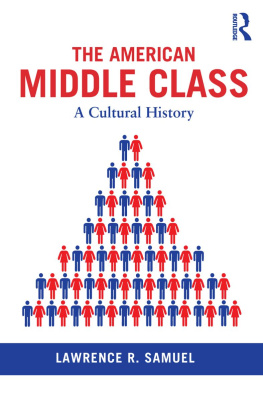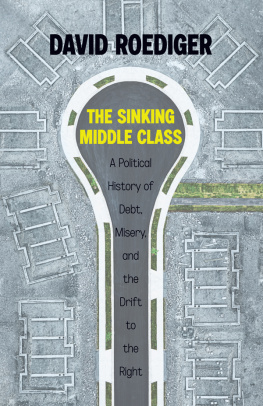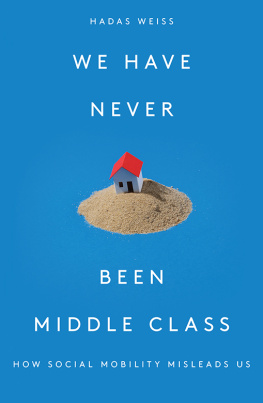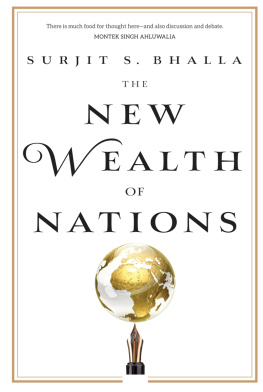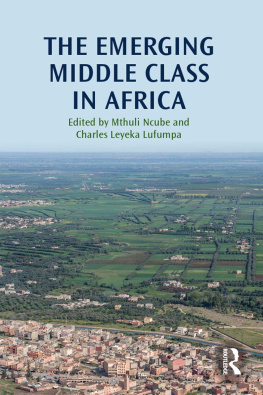Being Middle Class in China
Many studies of the Chinese middle class focus on defining it and viewing its significance for economic development and its potential for sociopolitical modernisation. This book goes beyond such objective approaches and considers middle class peoples subjective understanding and diverse experiences of class. Based on extensive original research including social surveys and detailed interviews, the book explores who the middle class think they are, what they think about a wide range of socioeconomic and sociopolitical issues, and why they think as they do. It examines attitudes towards the welfare state, social inequality, nationalism, relations with foreign countries and opinions on many social controversies, thereby portraying middle class people as more than simply luxury consumers and potential agents of democracy. The book concludes that a clear class identity and political consciousness have yet to emerge, but that middle class attitudes are best characterised as searching for a balance between old and new, the traditional and the foreign, the principled and the pragmatic.
Ying Miao is a Lecturer in China Studies at Xian Jiaotong-Liverpool University, China.
Routledge Studies on the Chinese Economy
Series Editor
Peter Nolan
Director, Centre of Development Studies;
Chong Hua Professor in Chinese Development; and
Director of the Chinese Executive Leadership Programme (CELP),
University of Cambridge
Founding Series Editors
Peter Nolan
University of Cambridge and
Dong Fureng
Beijing University
The aim of this series is to publish original, high-quality, research-level work by both new and established scholars in the West and the East, on all aspects of the Chinese economy, including studies of business and economic history.
For a complete list of titles in this series, please visit www.routledge.com/Routledge-Studies-on-the-Chinese-Economy/book-series/SE0706.
56 Chinas Centralized Industrial Order
Industrial reform and the rise of centrally controlled big business
Chen Li
57 Chinas Exchange Rate Regime
China Development Research Foundation
58 Chinas WTO Accession Reassessed
China Development Research Foundation
59 US-China Relations in the Twenty-First Century
A question of trust
Michael Tai
60 Understanding China
The Silk Road and the Communist Manifesto
Peter Nolan
61 Being Middle Class in China
Identity, attitudes and behaviour
Ying Miao
First published 2017
by Routledge
2 Park Square, Milton Park, Abingdon, Oxon OX14 4RN
and by Routledge
711 Third Avenue, New York, NY 10017
Routledge is an imprint of the Taylor & Francis Group, an informa business
2017 Ying Miao
The right of Ying Miao to be identified as author of this work has been asserted by her in accordance with sections 77 and 78 of the Copyright, Designs and Patents Act 1988.
All rights reserved. No part of this book may be reprinted or reproduced or utilised in any form or by any electronic, mechanical, or other means, now known or hereafter invented, including photocopying and recording, or in any information storage or retrieval system, without permission in writing from the publishers.
Trademark notice: Product or corporate names may be trademarks or registered trademarks, and are used only for identification and explanation without intent to infringe.
British Library Cataloguing in Publication Data
A catalogue record for this book is available from the British Library.
Library of Congress Cataloging in Publication Data
A catalog record for this book has been requested.
ISBN: 978-1-138-18768-9 (hbk)
ISBN: 978-1-315-64301-4 (ebk)
Typeset in Times New Roman
by codeMantra
This book could not have come into existence without the continuing support, unreserved encouragement and expert criticisms offered by a number of people. Professor Peter Nolan, who oversaw the meandering and often struggling process of transforming an idea and a question into a project and a book; whose words, actions and no nonsense advice not only taught me how to conduct research but also taught me how to be an academic. Professor David Goodman, whose unending patience, good humour and superhuman time management skills were instrumental in enabling the transition of this project from a thesis to a book, and transitioning myself from a PhD student to a starting lecturer and an early career researcher. I am especially thankful for his meticulous reading and editing of the manuscript on various occasions, hence, all mistakes that remain are mine. My gratitude goes to the following: numerous friends and esteemed colleagues in both the Centre of Development Studies, University of Cambridge, and the Department of China Studies, Xian Jiaotong-Liverpool University, who made the often idiosyncratic experience of academic pursuit enjoyable and rewarding; my parents, Ning Wang and Jiegang Miao, who are middle class maybe two days a week but scholarly curious and supportive always, who made everything possible; and finally, Dr. Yu Jia, my life partner and comrade in the scientific side of academia, who, despite preferring relativity to reflectivity, has been a constant source of comfort and cheer.
In August 2015, I was invited to stay in Aunt Lins newly purchased summer retreat in central China. As we drove through the impressive gates and past the vast golf course designed exclusively for the residents, she recounted a tale of how she fended off a girl who wanted to marry into their household, but demanded too much financially. After she listed all the things the girl wanted, the summer villa among them, Aunt Lin exclaimed: Who does she think we are? We are but a middle class family, we are not rich. A thoughtful pause later, she amended: Actually, we are just salaried class. A slightly better off salaried class family than others, but still! We work for our money, and money doesnt fall out of trees.


